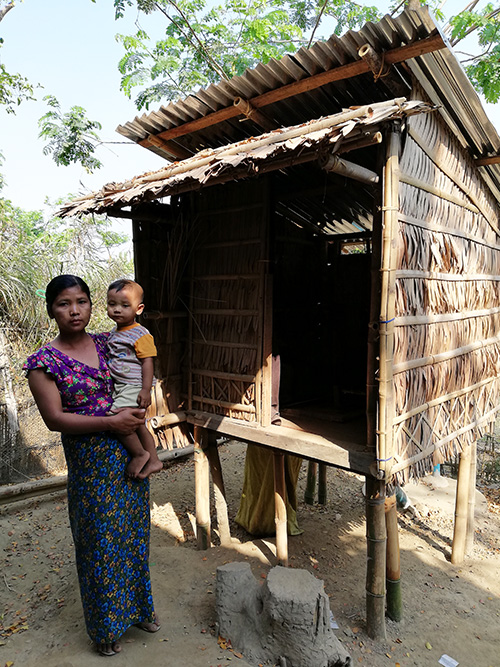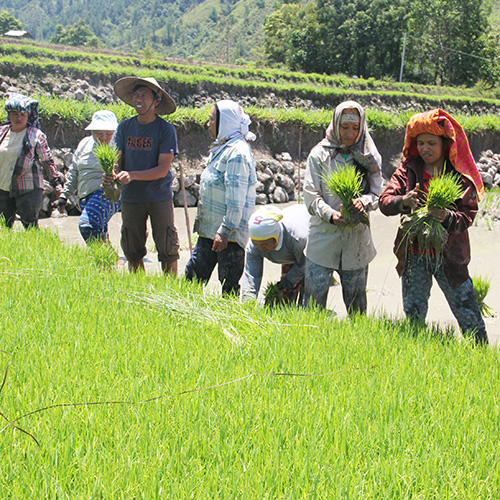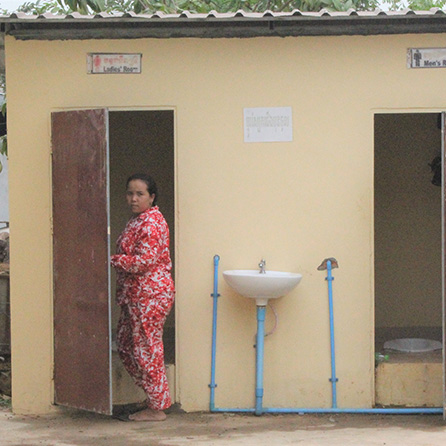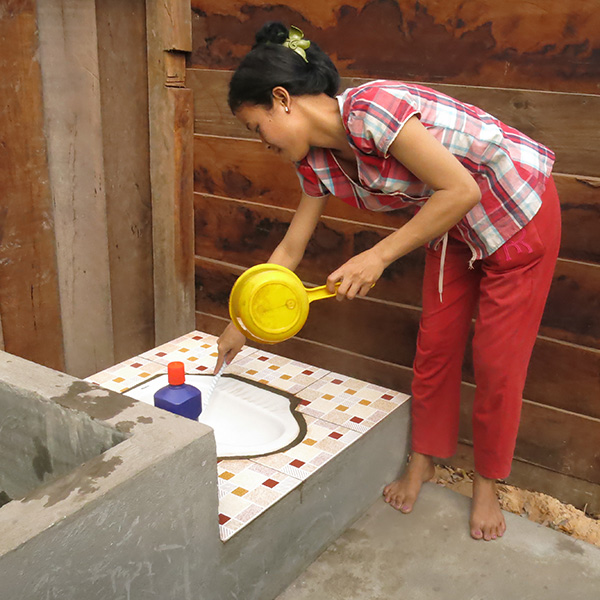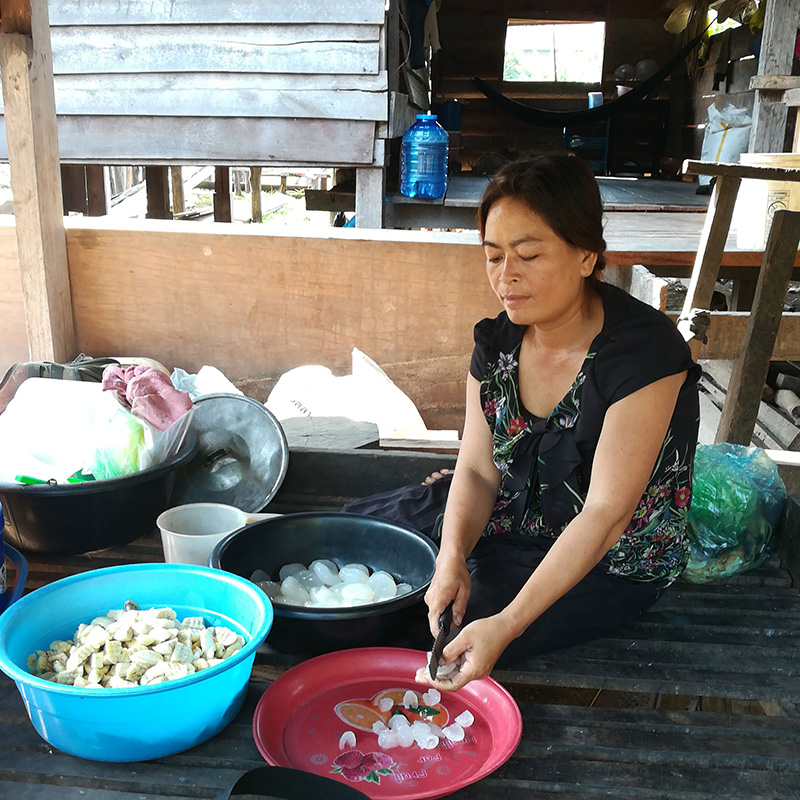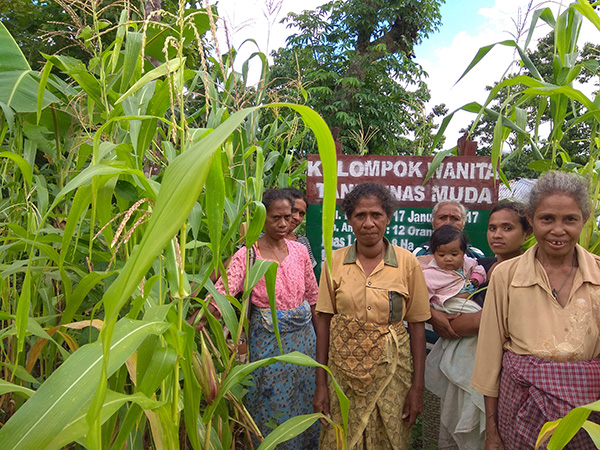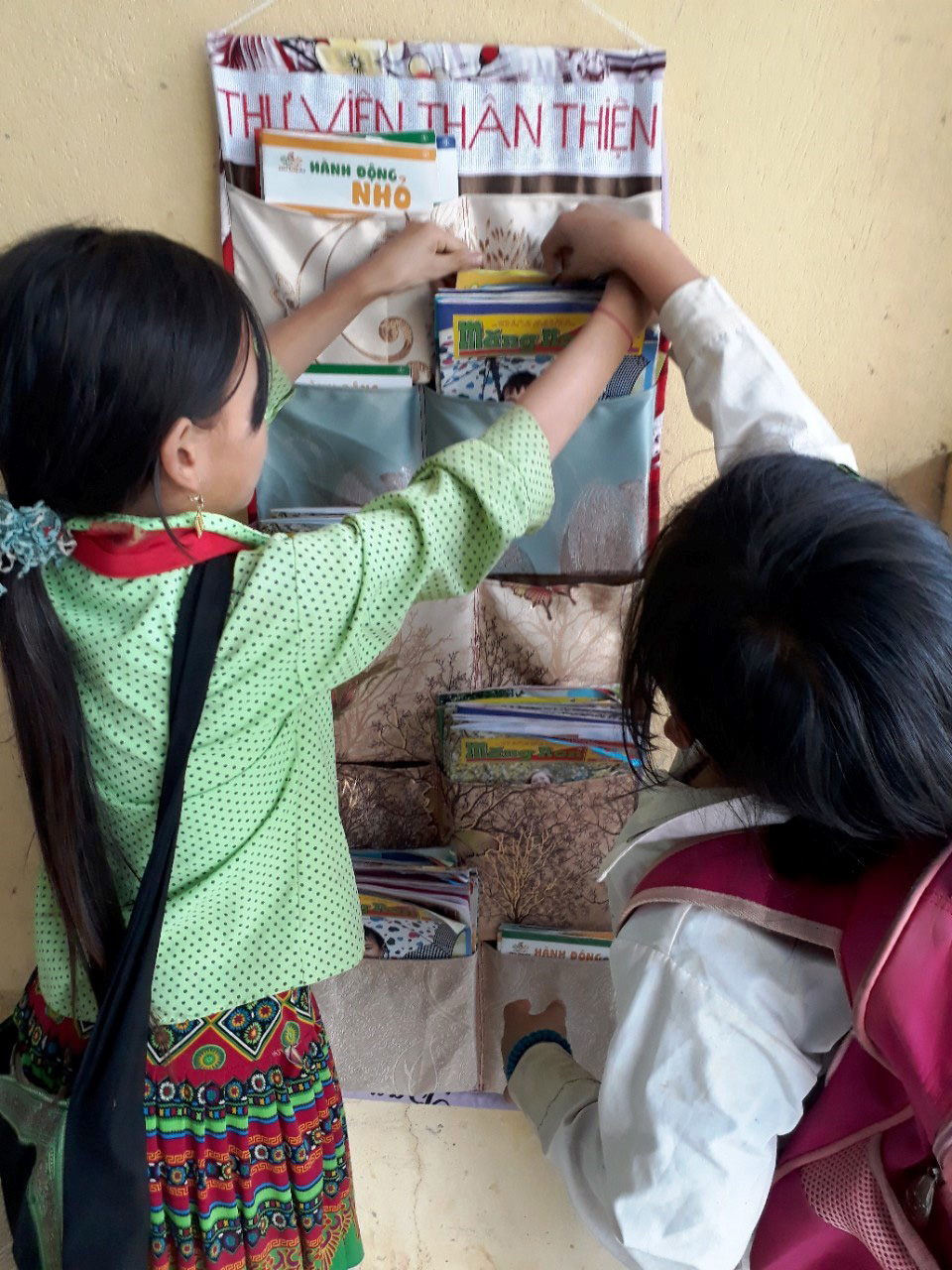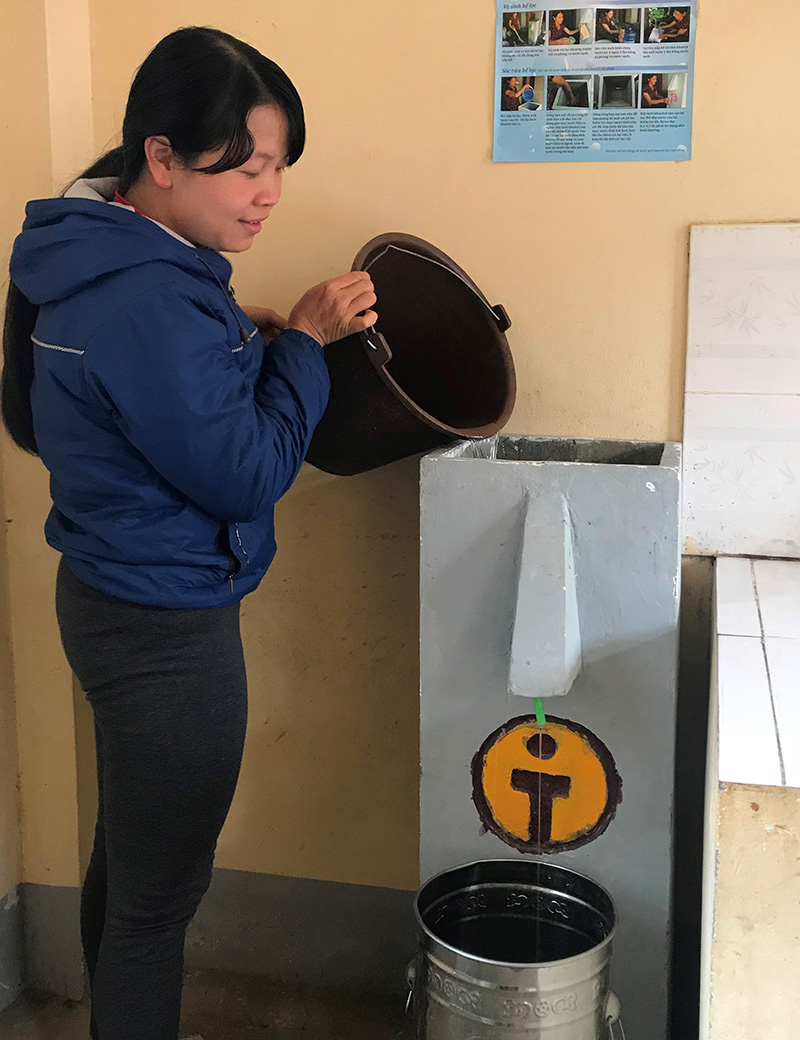Stories of Change
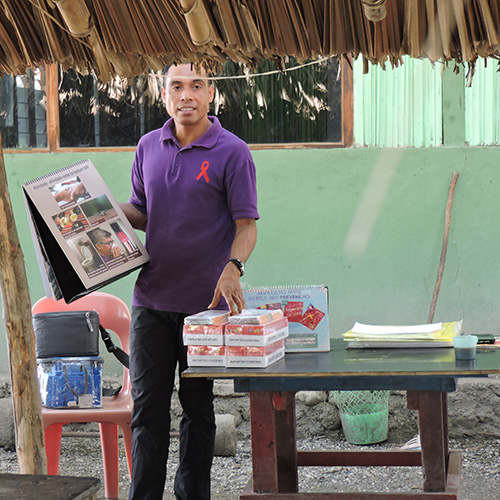
Cristovao da Costa Ramos at an information session in Baucau.
This program reached 1,970 people in 11 communities directly last year, and hundreds more in cities where World AIDS Day events were held.
Source: CWS Annual Report 2017
“We are ready to continue the program on our own”
With more than 16,000 residents, Baucau is the second largest city in Timor Leste and is located on the northern coast of Timor island. Like Dili, the nation’s capital and a much larger city, Baucau is home to a national defense forces base.
The CWS team in Timor Leste recently traveled to Baucau to support HIV prevention information sessions and routine HIV testing. The base commander is very supportive of this HIV prevention program, so his troops were active participants in the information sessions.
“I’m happy because our messages were well received and many soldiers took the opportunity to be tested for sexually transmitted infections,” says CWS Program Officer Cristovao da Costa Ramos. He continued, “I joined CWS about a year ago to support this work, which I believe is having a positive impact. Our doctors and the other health care workers are doing a really great job. I have had the opportunity to see the work of my army and navy colleagues, and, in my opinion, we are ready to continue to HIV prevention program [on our own now].”
CWS has led the HIV education and prevention program with active engagement from Timor Leste’s nation armed forces and with funding from the U.S. Department of Defense HIV Prevention Program for almost a decade; our engagement will end later this year.

